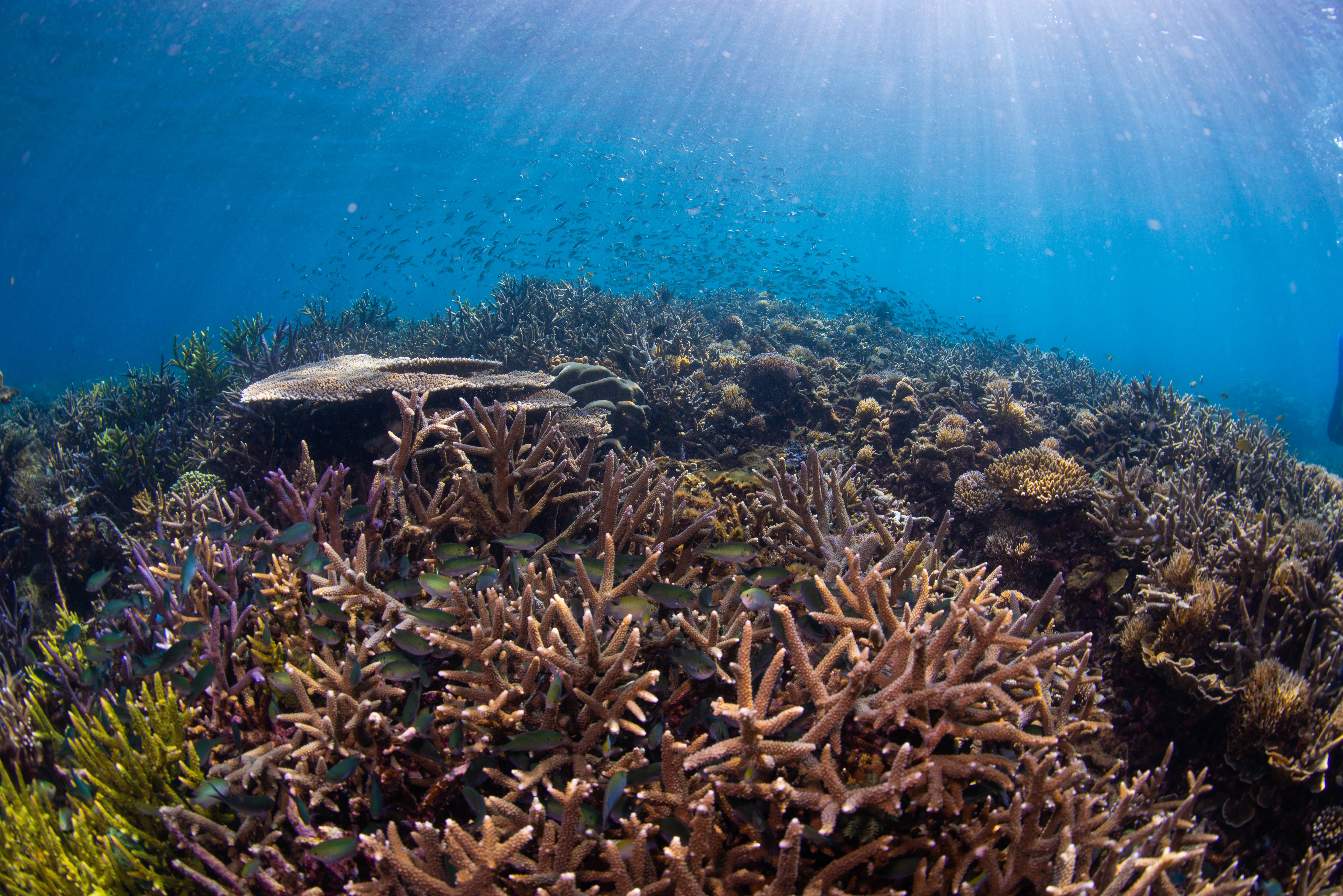Fish ‘sing’ as Indonesian coral reef restored back to life
Coral has been reseeded at South Sulawesi site over 10-year period

Your support helps us to tell the story
From reproductive rights to climate change to Big Tech, The Independent is on the ground when the story is developing. Whether it's investigating the financials of Elon Musk's pro-Trump PAC or producing our latest documentary, 'The A Word', which shines a light on the American women fighting for reproductive rights, we know how important it is to parse out the facts from the messaging.
At such a critical moment in US history, we need reporters on the ground. Your donation allows us to keep sending journalists to speak to both sides of the story.
The Independent is trusted by Americans across the entire political spectrum. And unlike many other quality news outlets, we choose not to lock Americans out of our reporting and analysis with paywalls. We believe quality journalism should be available to everyone, paid for by those who can afford it.
Your support makes all the difference.Never-before-heard fish noises, which scientists say sound like “whoops, croaks, foghorns and growls”, suggest a restored coral reef in Indonesia has fast returned to its non-damaged state.
Researchers used underwater microphones to “eavesdrop” on species both inhabiting and returning to the reef after coral was reseeded there over a 10-year period.
The sounds go some way to providing an audible measure of the site’s renewed health, according to the team, who published their findings in the Journal of Applied Ecology and say they demonstrate “restoration can really work”.
“But it’s only part of a solution that must also include rapid action on climate change and other threats to reefs worldwide,” Dr Tim Lamont, from the University of Exeter, and lead author of the study, said.
The reef had been devastated by blast fishing, where explosives are used to stun or kill everything in the area.
“What’s left behind is a rubble field,” Dr Lamont told the BBC. “It’s very difficult for coral to grow because there’s no solid substrate on the seabed.”
The study saw experts analyse around four hectares of recovering reefs at the Mars Coral Reef Restoration Project, in the Spermonde archipelago, in central Indonesia. As part of ongoing work to repair the damage, small pieces of live coral have been attached to metal frames, which were placed in the “rubble field” left by the blast fishing.
Researchers also compared the recordings they captured at the restored reef to healthy reefs nearby, and to degraded reefs close to the same site – the former of which Dr Lamont said sound “more like the healthy, thriving reefs” once seen around the world.
Describing the recordings, Dr Lamont said the “backing track of the reef” was snapping shrimp. “That sounds like a bit like the static on the radio or frying bacon. Then, through that sound, you’ll occasionally hear little trills, whoops or croaks.”

The fish responsible for many of these unique sounds remain a mystery, though, with Dr Lamont saying the diversity of the sounds that fish produced was “as much as the diversity of birdsong”.
Visual surveys tend to miss camouflaged animals and those that come out only at night, leaving Dr Lamont and his team to turn to the reef’s sounds.
“Working on underwater sound on coral reefs has often been quite miserable,” he said in an interview with The Guardian. “We’ve been listening to reefs going into silence as they degrade. But this restoration site was exciting and inspiring, because the change was going in the other direction.”
Sound is considered vital for reef survival due to almost all regular inhabitants producing offspring that go on to use it as a beacon to make the journey home when necessary.
“In some cases we can make an educated guess about what animal is making the noise, and in other cases we have no idea,” Dr Lamont told BBC Radio 4’s Inside Science programme.
“For me, that’s part of the excitement of this whole field – the joy of knowing that you might hear something that nobody else has ever heard before.”
Join our commenting forum
Join thought-provoking conversations, follow other Independent readers and see their replies
Comments